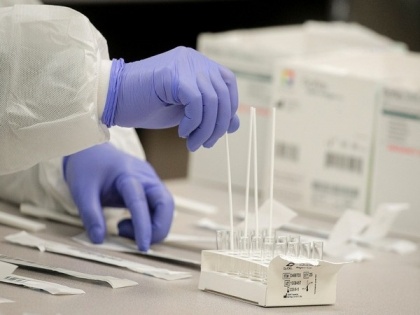Pakistan analysing samples of 3 'suspected' Omicron cases
By ANI | Published: December 12, 2021 02:34 PM2021-12-12T14:34:39+5:302021-12-12T14:45:08+5:30
Pakistan's national health institute has said the results of samples of three "suspected cases" of the Omicron COVID-19 variant in the country will be received by Monday.

Pakistan analysing samples of 3 'suspected' Omicron cases
Pakistan's national health institute has said the results of samples of three "suspected cases" of the Omicron COVID-19 variant in the country will be received by Monday.
"Though we get result of polymerase chain reaction (PCR) test the same day, genome sequencing which is done to confirm the exact variant of the virus, is a lengthy and complicated procedure. We will get the result by Monday," a National Institute of Health (NIH) told Dawn newspaper on the condition of anonymity.
"There can be a new mutation in the virus and we may find a new variant just like Omicron reported in South Africa," the official added.
Earlier this week, the provincial government in Sindh claimed that the way the virus was behaving in a Karachi patient seemed it was the Omicron.
This issue was later circulated in the media and reported as the first case of Omicron. However, later, Pakistan health authorities had issued a clarification stating that the sample was yet to be confirmed as Omicron through whole-genome sequencing.
This development comes as Omicron has been reported in over 50 countries, and World Health Organization (WHO) expects the number to continue growing.
Features of the new COVID-19 variant Omicron, including the extent to which it will spread, and the sheer number of mutations, suggest that it could have a major impact on the course of the pandemic, according to WHO.
During a briefing in Geneva earlier this week, WHO chief Tedros Ghebreyesus highlighted "a consistent picture of the rapid increase in transmission" but said that the exact rate of increase relative to other variants remains difficult to quantify.
Despite some data from South Africa suggesting an increased risk of re-infection with Omicron, more data is needed, UN News reported. Experts believe that the variant might also cause milder disease than Delta, but there is no definitive answer yet.
( With inputs from ANI )
Disclaimer: This post has been auto-published from an agency feed without any modifications to the text and has not been reviewed by an editor
Open in app